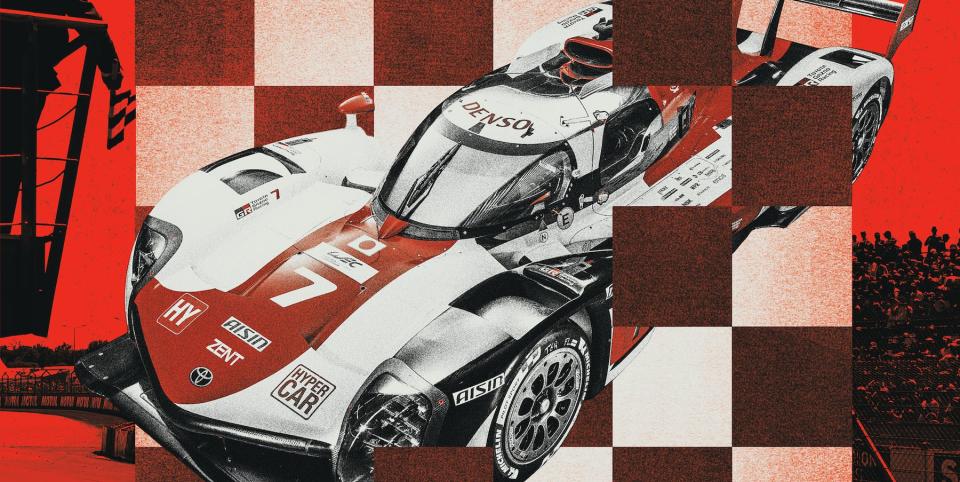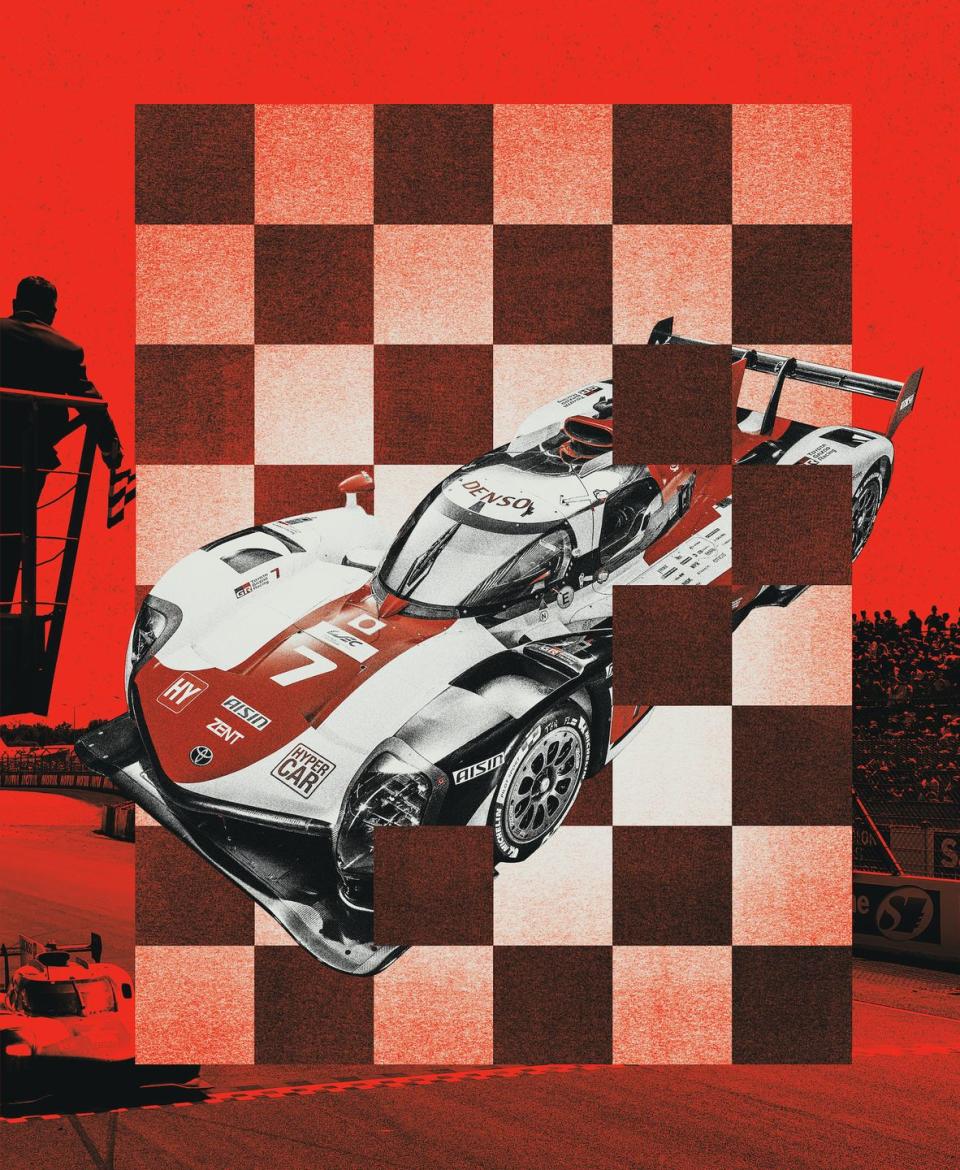Why Is Toyota’s Recent Dominance at La Sarthe So Underwhelming?


Recall endurance racing’s legendary marques: Ferrari, Porsche, Audi, Jaguar, Bentley. Did you forget Toyota? The world’s largest automaker has claimed victory at Le Mans more times than Peugeot, Alfa, Ford, or Bugatti, but all that winning has amounted to is indifference. A shoulder shrug. So what?
Weird, right?
Many onetime fans have zoned out of Le Mans for the past half decade. Why? Here’s why. In the vacuum left by Audi’s and then Porsche’s departure from prototype racing, Toyota filled the void. As the sole factory team left at Le Mans, Toyota took its first overall win in 2018.
This story originally appeared in Volume 16 of Road & Track.
It was only the second Le Mans victory by a Japanese automaker. Toyota insisted that was monumental. Only it wasn’t. For that 2018 run, Toyota brought nukes to a knife fight, both driving talent (Fernando Alonso, Sébastien Buemi, and Kazuki Nakajima piloted the winning car) and financing (some reports assert that the LMP1 hybrids cost hundreds of millions per year). Toyota crushed the leftover nonhybrid competitors. Four years of uninterrupted and monotonous dominance followed. Call it a dynasty. Racing fans love a good dynasty.
So why don’t we love Toyota’s wins at Le Mans? That’s obvious: Toyota didn’t earn it.
Remember the heartbreak of 2016, when Toyota lost Le Mans with minutes to go? Its car sputtered to a halt, and Porsche snuck by for the win. Never has endurance racing been so cruel. Had Toyota followed that heartbreak with a win in 2017, defeating Porsche in the big German’s final LMP1 effort, it would’ve been a triumph for the ages.
Instead, Toyota finished eighth overall that year behind six LMP2 competitors. Then Porsche left Le Mans, meaning that Toyota’s 2018 win, and every subsequent victory, rang hollow—a thunderous fanfare played in a vacuum. And while there’s still something magical about Alonso’s nighttime stint from 2018—one of the most hypnotic and thrilling onboards ever seen—it was merely an F1 great turning lesser equipment into a rearview blur, a shark among minnows.
Of course, there’s a twinge of Eurocentrism in diminishing Toyota; there always has been where racing legacy is weighed. But how is it that even Audi’s ruthless dynasty is more celebrated? The Germans approached Le Mans as a problem to be solved, the way a mathematician works through some head-scratcher on a chalkboard. They won with diesel. They won with silence. They won with efficiency. They throttled legitimate competition.

Some call it xenophobia, but xenophobia is not the same as disinterest. Toyotas sit in hundreds of millions of driveways, many as beloved as house pets. But when it comes to a brand ethos predicated on stodgy reliability, on selling RAV4s by the billion, I simply can’t connect the Toyota Tacoma in my garage with some soggy circuit in the French countryside. At least Audi named a mid-engine road car after its Le Mans winner. Toyota won’t even build its own Supra.
Fortunately, Toyota’s got another shot at winning our hearts. No, Supra production isn’t moving to Motomachi. This year, which marks the Le Mans centenary, will be different from the last five. Manufacturers have returned to la Sarthe in droves thanks to streamlined regulations. Call it a sea change. Porsche, Ferrari, Peugeot, Cadillac, and curious privateers like Glickenhaus are back for a shot at Toyota’s crown.
With a stacked field, 2023 could kick off a new golden age in endurance racing. The eyes of zoned-out racing fans have snapped back to Le Mans once more. If Toyota truly deserves a mention among endurance racing’s all-timers, it’ll have 24 hours in France to prove it.
You Might Also Like

 Yahoo Autos
Yahoo Autos 